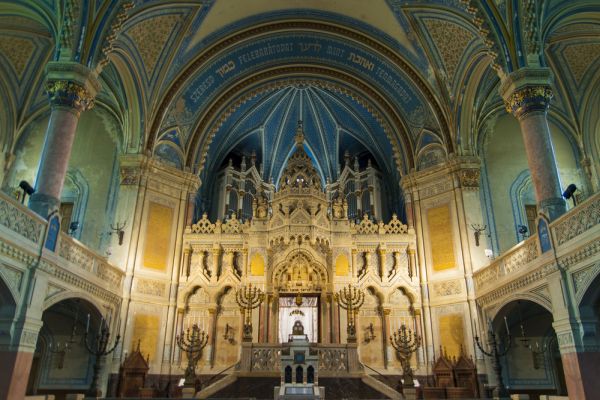Yom Kippur is not a standalone Holy day, it’s actually the culmination of a 10-day period of reflection starting on Rosh Hashanah.
One of the traditions we do during this period is called tashlich — we write down our sins on little pieces of paper, and place them in a river. Interestingly, my temple typically uses a nearby stream, but it was dried up this year due to drought. Instead, the temple decided to rent a few goats and have them eat our sins! As you probably know, goats will eat literally anything.
Yom Kippur itself is the Day of Atonement, which means it’s a good time to take stock of how you’ve treated people in the last year. It’s also the holiest day of the year in the Jewish religion, best-known for the fast. Denying ourselves is meant to help us in our goal of atoning for our sins. Then, at the end of a 25-hour fast, we enjoy a nice, light meal — nothing too heavy. (Tonight is the night when we stuff our faces.)
During the fast, activity is supposed to be kept at a minimum. Some people spend the entire 25 hours in temple, but there really is a wide range of ways to observe Yom Kippur because of the diversity within the Jewish community. Friends and family of Jewish people might receive phone calls from people seeking to heal old wounds this time of year, as well. I, personally, have a lot of experience forgiving myself at this time of year.
Lastly, a lot of people don’t know what to say to Jews on Yom Kippur. It is a solemn holiday, but even solemn holidays in this country feature beer or human-sized bunnies. I know if someone says, “Happy Yom Kippur,” to me, I think “Bless your heart,” in the Southern way. Other people know that the Day of Atonement is not a party, and that’s the reason why they often don’t know what to say. The best thing to say is “Have an easy and meaningful fast,” or, “Have a good year.”
I’ll be attending services tomorrow with my kids and their kids. It will mean a lot to me to be there with my family.


Recent Comments